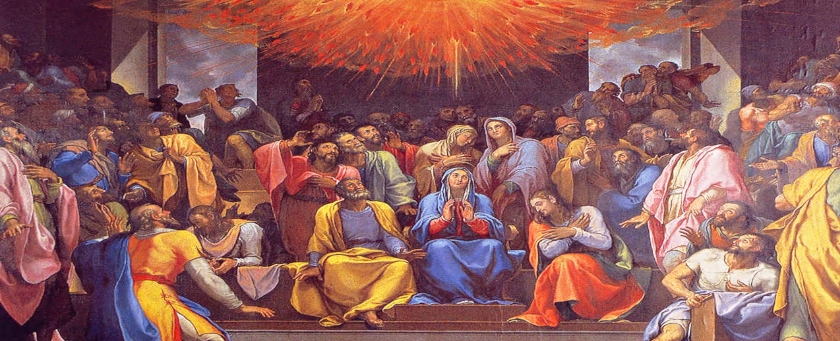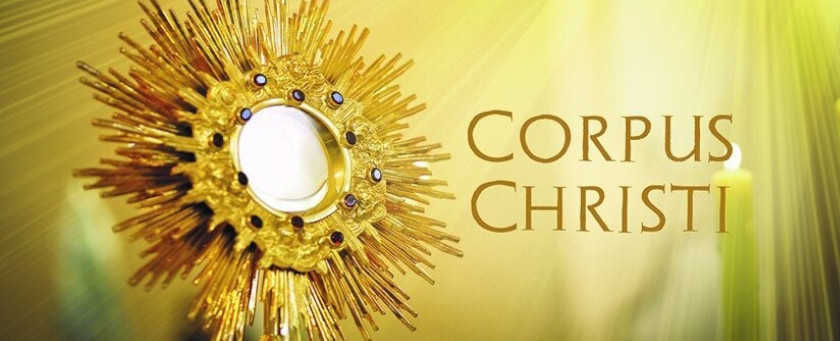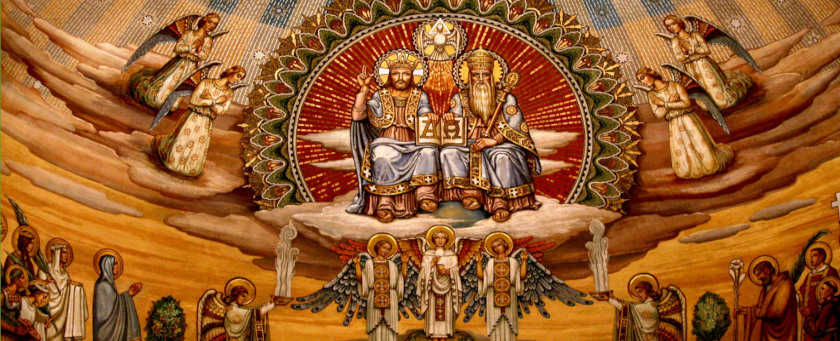The Sacraments: Our Encounters with the Holy Spirit
Pentecost Sunday, Year A

Readings:
Acts 2:1-11; Ps. 104; 1 Cor. 12:3b-7, 12-13; Jn. 20:19-23
(Audio recorded live, 28 May 2023)
Today is the Solemnity of Pentecost, which marks the fiftieth day after the Resurrection of Jesus. The Solemnity of Pentecost bears resemblance to the Jewish feast of Shavuot, which celebrates the day Moses received the TORAH from God on Mount Sinai. The word Pentecost is Greek for fiftieth day, and the word Shavuot is Hebrew for fiftieth day. This year, Passover began on April 5th, which was Wednesday of Holy Week. So, in a sense, we are observing these two ancient traditions simultaneously.
While the Jewish feast of Shavuot observes the giving of the TORAH, the Christian feast of Pentecost observes the giving of the Holy Spirit. It is important for we Christians, however, to acknowledge that both were necessary for salvation. If not for the giving of the TORAH and the Law, the people of Israel would not have prepared a path for the coming of the Christ. If not for the giving of the Holy Spirit and the sacraments, the people of God would have remained in their sins. The Law, like Moses, was a mediator to expose sinful behavior and inform the people what not to do to offend God or others. The Holy Spirit, on the other hand, was sent to be our Advocate, our defender, in a world full of temptation and sin. It is the Holy Spirit who reveals the intentions of hearts and helps us to be aware of our own need for God’s mercy and love.
I found it interesting that today’s readings highlight both the descent of the Holy Spirit on the Apostles, as well as Jesus’ institution of the sacrament of Reconciliation. What is Mother Church saying to us by putting these two readings together? On the one hand, we see how the Apostles were filled with the Holy Spirit, which gave them courage to go and preach the Good News. Not only that, they were able to be understood by all people. St. Peter showed the people that Jesus, whom they had crucified, is both Lord and Messiah. Those who heard this were cut to the heart and asked, “What are we to do, my brothers?” And Peter tells them to repent and be baptized. The Scripture says St. Peter baptized three thousand persons that very day.
We all know that baptism is a sacrament by which we receive the Holy Spirit. It is the first sacrament, our first encounter with the Spirit and indeed the Church. “Through baptism men and women are freed from sin, are reborn as children of God, and, configured to Christ by an indelible character, are incorporated into the Church” (CIC 849). Those who are baptized are washed not only from Original Sin, but from all the sins of their past. But, what if a baptized person commits sin again?
In the gospel, Jesus institutes the Sacrament of Reconciliation. He knows that people are not perfect. So, he encouraged us to be perfect as our heavenly Father is perfect. He gave us the Law of Love so that we would learn to love God and neighbor so as to avoid sin. But, this is not always possible. We sometimes give in to temptation. We sometimes give in to sin. How, then, are we to be healed from a state of sin after baptism? The sacrament of Reconciliation is the key.
Some people may ask, “Why do I have to confess my sins to a priest?” The best explanation is because that is how Jesus wanted it. Just as he told the disciples the night of the Last Supper to, “Do this in memory of me,” thereby instituting the priesthood and the Eucharist, so too, does Jesus say to the disciples in today’s gospel, “Whose sins you forgive are forgiven them, and whose sins you retain are retained.” During the sacrament of confession, whatever sins we confess are spoken to the priest, but ultimately to Christ, who is the source of God’s mercy and forgiveness. We know that when we receive Holy Communion we are encountering Christ in the Blessed Sacrament. We should therefore approach the confessional with the same confidence as when we approach the altar, knowing that we are encountering the Lord and his mercy.
St. Paul reminds us that no one can say Jesus is Lord except by the Holy Spirit. When St. Peter makes his great confession to Jesus, Jesus says, “Blessed are you, Simon son of Jonah. For flesh and blood has not revealed this to you, but my heavenly Father” (Mt. 16:17). The Father revealed this to St. Peter by the Holy Spirit. It is no different for any of us. We confess that Jesus Christ is Lord not because a man said we should, rather, we came to believe this on our own. That is the definition of faith: the realization of what is hoped for and evidence of things not seen (Heb. 11:1). It is this faith in Jesus Christ that leads to our encountering him in the sacraments. The sacraments are, in a sense, the tools God gave us to remain united to Him and His Church. Failure to use these tools puts us at odds with God and one another. Regular use of the tools and living the sacramental life brings about restoration and builds unity.
St. Paul’s image of the mystical body of Christ shows that the manifestation of the Spirit is different for everyone, yet, it is the same Spirit. As we celebrate the Solemnity of Pentecost, the same Holy Spirit remains with us, especially in the Most Blessed Sacrament of the Altar. May our celebration of the Eucharist today help us to be mindful of the manifestation of the Spirit in our lives, how the sacraments are a true encounter with the Lord Jesus, and that we are all part of the mystical Body of Christ, the Church. This is heaven on earth, and our true home. May the Holy Spirit continue to dwell in the hearts of all the faithful as together we proudly confess our faith in Christ Jesus the Lord.





Twitter
Facebook
Pinterest
Email